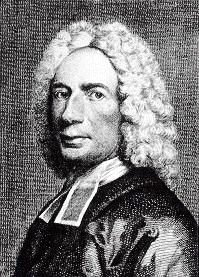Now it is Easter week, when we truly contemplate all that the cross of Christ can mean.
we truly contemplate all that the cross of Christ can mean Share on XWhen I survey the wondrous cross
On which the Prince of Glory died,
My richest gain I count but loss,
And pour contempt on all my pride.
Forbid it, Lord, that I should boast
Save in the death of Christ, my God;
All the vain things that charm me most
I sacrifice them to His blood.
See, from His head, His hands, His feet,
Sorrow and love flow mingled down;
Did e’er such love and sorrow meet,
Or thorns compose so rich a crown?
Were the whole realm of nature mine,
That were a present far too small;
Love so amazing, so Divine,
Demands my soul, my life, my all.
Although this beautiful hymn was written by Isaac Watts, it is reported that Charles Wesley once said he would rather have written it than all his own! And Wesley wrote thousands! (You can read about some of his elsewhere on this blog.)
You can read about some of his elsewhere on this blog Share on X Isaac Watts wrote many of his famous hymns after returning from college to his home in Southampton, England. At the age of twenty-two, he left home to be a tutor in London, although he felt a pull towards full-time ministry in the church. On his twenty-fourth birthday, July 17, 1698, he preached his first sermon, and the next year he became assistant pastor of Mark Lane church in London. In March 1700, Isaac received a letter from his brother, Enoch, encouraging him to try to have his hymns published. Part of the letter appears below:
Isaac Watts wrote many of his famous hymns after returning from college to his home in Southampton, England. At the age of twenty-two, he left home to be a tutor in London, although he felt a pull towards full-time ministry in the church. On his twenty-fourth birthday, July 17, 1698, he preached his first sermon, and the next year he became assistant pastor of Mark Lane church in London. In March 1700, Isaac received a letter from his brother, Enoch, encouraging him to try to have his hymns published. Part of the letter appears below:
I am very confident whoever has the happiness of reading your hymns (unless he be either sot or atheist) will have a very favourable opinion of their author… There is…a great need of a pen, vigorous and lively as yours, to quicken and revive the dying devotion of the age…Yours now is the old truth, stripped of its ragged ornaments, and appears, if we may say so, younger by ages in a new and fashionable dress.
Isaac did not follow up on this immediately, but kept busy, as he was now the full pastor of his church. His health was fragile, and he was given an assistant, Samuel Price, of Wales. Under the ministry of these two men, that church revived from its dying state, with numbers increasing so that a new, larger building had to be secured. It wasn’t until 1707 that Isaac submitted his hymns for publishing, selling the copyright to a Mr. Lawrence for ten pounds. This first volume’s success resulted in its being enlarged and republished in 1709. When I Survey was inspired by Galatians 6:14: But God forbid that I should boast, except in the cross of our Lord Jesus Christ, by Whom the world has been crucified to me, and I to the world. (NKJV) Many consider it the finest hymn in English church history. It is certainly loved by millions. May we sing it with renewed devotion this Good Friday.
Charles Wesley once said he would rather have written it than all his own! Share on XWORDS: ISAAC WATTS TUNE: ROCKINGHAM, ADAPTED BY EDWARD MILLER FROM A PREVIOUS ANONYMOUS MELODY, TUNEBRIDGE
S.A.SONG BOOK, 1987 EDITION, #136 SECTION: THE LORD JESUS CHRIST – ATONING WORK
REFERENCE: MORGAN, ROBERT J., THEN SINGS MY SOUL, BOOK 2







